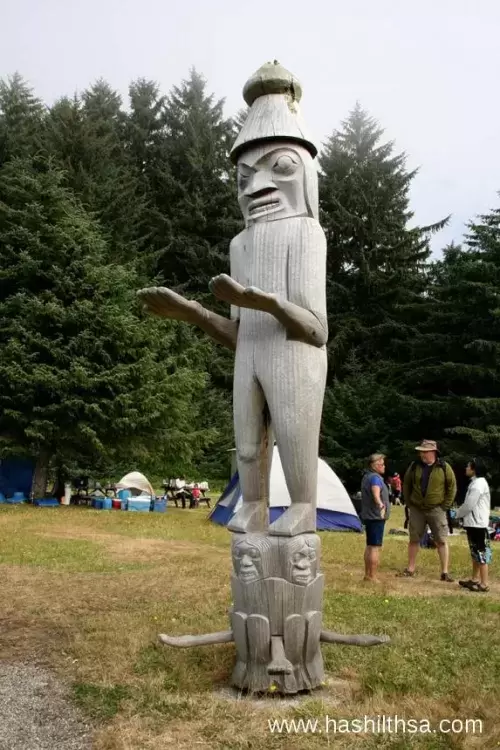A solar-powered lighting project, part of tourism development at Yuquot, is temporarily on hold due to a pandemic closure.
Mowachaht-Muchalaht First Nation (MMFN) was planning to complete the first phases of its photo-voltaic installation at the Friendly Cove village site this summer, said Dorothy Hunt, MMFN lands manager.
Power supply is a key component in a series of improvements at the village, MMFN’s ancestral home, centre of the Nuu-chah-nulth world and a national historic site.
“The Mowachaht-Muchalaht people have had many projects that ended up not being built because of a lack of power at Yuquot,” Hunt said.
Last year, MMFN obtained a $100,000 B.C. Rural Dividend grant to install a solar panel system at the Yuquot general store. This year, an application to the B.C. Indigenous Clean Energy Initiative (BCICEI) brought another $150,000 that enables completion of the local power project.
This has been the quietest of summers at the site, though. When the provincial government moved to its third phase of reopening the economy earlier in the summer, MMFN opted to play it safe.
“Because of COVID-19, we’ve closed Yuquot to tourists,” Hunt said. “We do have a lot of phone calls about Yuquot and the Nootka Trail. We’ve informed them that it’s not allowed at the moment. The chiefs just wanted to be cautious.”
Kyuquot has also been closed since spring.
Yuquot Spirit Summerfest, MMFN’s annual celebration and campout, had to be cancelled this year as part of the closure. Aside from the Williams family, the only MMFN members to reside full time at Yuquot, there are the staff at nearby Nootka Sound Lighthouse.
Phase 1 of the solar power initiative is mostly complete. Phase 2 will light up the trail to six existing guest cabins and a display of village artifacts. The solar installation contractor is anxious to return and complete the project, Hunt said.
“We’re just waiting for the right time to go and connect it all,” she said.
Despite its relative isolation from the outside world — removed from power grids and roads, accessible only by boat or air — Yuquot normally attracts thousands of visitors at this time of year. They are drawn by the unique historic and cultural legacy of more than 4,000 years of Nuu-chah-nulth settlement, the place of first contact with European explorers and traders in the 18th century.
A feasibility study is underway that should help to spearhead development of a cultural and interpretive centre at the site, Hunt said.
“It’s been high on our agenda for a number of years,” she said.
In addition, MMFN has a pending application to have Yuquot designated a UNESCO world heritage site, one of 42 proposed across Canada.
In Gold River, MMFN has added 120 sites at its RV campground and continues to work on its Welcome House guest facility.
One of the guiding concerns of MMFN’s tourism development initiatives has been the importance of preserving the ambience of Yuquot, an interest supported by clean energy.
BCICEI typically supports planning for clean energy generation, efficiency and storage projects involving hydro, wind, biomass, solar, marine and geothermal sources. The fund has so far invested more than $3.5 million in 31 projects, including 10 in off-grid or diesel-dependent communities. One of its priorities is to assist remote communities in reducing fossil fuel dependency.
“Many Indigenous communities throughout B.C. are leading the way in developing clean energy alternatives, especially when it comes to reducing reliance on diesel generators in remote areas,” said Alberni-Pacific Rim MLA Scott Fraser, minister of Indigenous Relations and Reconciliation.







